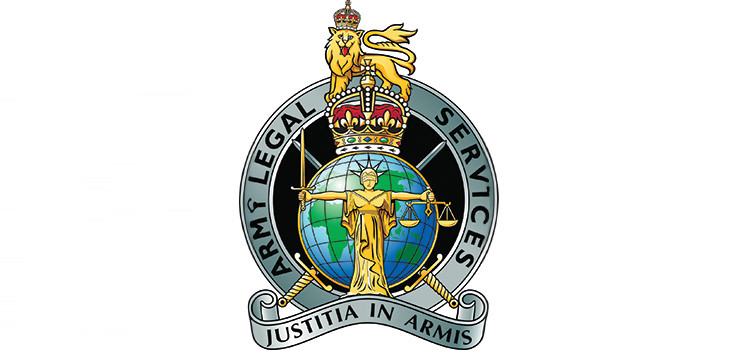*/

Army Legal Services (ALS) is a branch of the Adjutant General’s Corps and the British Army’s in-house counsel. Its responsibilities are extensive, from prosecuting in the Court Martial and giving legal advice on international, civil and military law, to advising on operational law, the law of armed conflict and rules of engagement, and all aspects of service discipline.
ALS encompasses three broad elements – prosecutions, general advisory and operational law – but its barristers will work in all areas during their Army career, from advising the chain of command on the finer points of international law in the middle of a war zone to deciding whether to prosecute a soldier in the Court Martial.
ALS’s three pillars are broken down as follows:
In recognition of their professional qualifications, the ALS is an officer-only branch of the Army. After two weeks of initial training, ALS officers attend a nine-week commissioning course at the Royal Military Academy Sandhurst. There they are put through their paces learning basic military skills, including weapons training and drill, as well as the relevant areas of law and developing their ability to lead and command.
They are then sent out on attachments to combat units often based overseas where they operate as non-lawyers for three months to give them first-hand experience of Army life. Each year, ALS looks to recruit eight to ten fully qualified solicitors, barristers or Scottish advocates who are physically fit and aged between 23 and 32, though this upper age limit may be waived.
Look out for our forthcoming 2025 recruitment campaign in Counsel magazine, and see here to find out more.



Army Legal Services (ALS) is a branch of the Adjutant General’s Corps and the British Army’s in-house counsel. Its responsibilities are extensive, from prosecuting in the Court Martial and giving legal advice on international, civil and military law, to advising on operational law, the law of armed conflict and rules of engagement, and all aspects of service discipline.
ALS encompasses three broad elements – prosecutions, general advisory and operational law – but its barristers will work in all areas during their Army career, from advising the chain of command on the finer points of international law in the middle of a war zone to deciding whether to prosecute a soldier in the Court Martial.
ALS’s three pillars are broken down as follows:
In recognition of their professional qualifications, the ALS is an officer-only branch of the Army. After two weeks of initial training, ALS officers attend a nine-week commissioning course at the Royal Military Academy Sandhurst. There they are put through their paces learning basic military skills, including weapons training and drill, as well as the relevant areas of law and developing their ability to lead and command.
They are then sent out on attachments to combat units often based overseas where they operate as non-lawyers for three months to give them first-hand experience of Army life. Each year, ALS looks to recruit eight to ten fully qualified solicitors, barristers or Scottish advocates who are physically fit and aged between 23 and 32, though this upper age limit may be waived.
Look out for our forthcoming 2025 recruitment campaign in Counsel magazine, and see here to find out more.




The Bar Council is ready to support a turn to the efficiencies that will make a difference
By Louise Crush of Westgate Wealth Management
Marie Law, Director of Toxicology at AlphaBiolabs, examines the latest ONS data on drug misuse and its implications for toxicology testing in family law cases
An interview with Rob Wagg, CEO of New Park Court Chambers
What meaningful steps can you take in 2026 to advance your legal career? asks Thomas Cowan of St Pauls Chambers
Marie Law, Director of Toxicology at AlphaBiolabs, explains why drugs may appear in test results, despite the donor denying use of them
Ever wondered what a pupillage is like at the CPS? This Q and A provides an insight into the training, experience and next steps
The appointments of 96 new King’s Counsel (also known as silk) are announced today
Ready for the new way to do tax returns? David Southern KC continues his series explaining the impact on barristers. In part 2, a worked example shows the specific practicalities of adapting to the new system
Resolution of the criminal justice crisis does not lie in reheating old ideas that have been roundly rejected before, say Ed Vickers KC, Faras Baloch and Katie Bacon
With pupillage application season under way, Laura Wright reflects on her route to ‘tech barrister’ and offers advice for those aiming at a career at the Bar